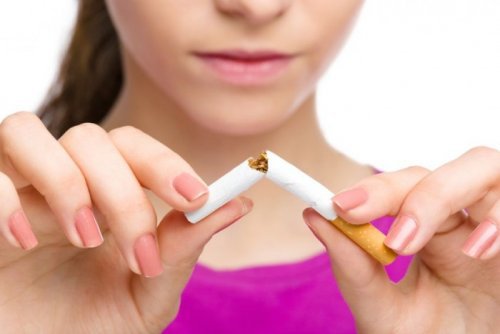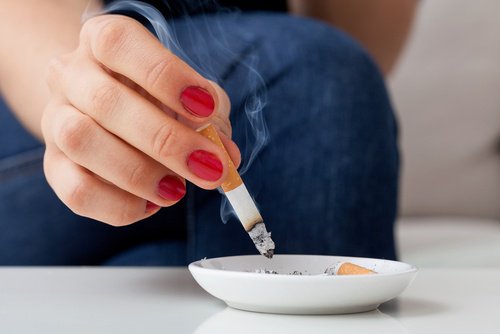A Timeline of What Happens When You Quit Smoking


Reviewed and approved by the doctor José Gerardo Rosciano Paganelli
What happens when you quit smoking?
Quitting smoking is a big and healthy goal for those who have been addicted to tobacco. Within that group, however, there are skeptics of the issue who think that there are no benefits from quitting.
Whether they’re good or bad, it can be hard to change your habits. This is definitely the case with tobacco use. People who are accustomed to this habit are usually stubborn and rarely seek professional help.
Smoking is one of the leading causes of death in the world, making it critically important to avoid its use.
This argument isn’t always enough for the people who are addicted to tobacco products, however.
The Health Timeline When You Quit Smoking
The damaging consequences of cigarette smoking often don’t deter many.
If you show them the series of benefits of quitting smoking in chronological order, however, you can be much more convincing.
If you or someone you know is a smoker, try reviewing the following arguments. Here’s what happens when you quit smoking, in order.
Do you want to know more? Read: Quit smoking with these 4 easy tips
Twelve hours after your last cigarette

The earliest benefits are obtained in the first 12 hours of quitting smoking. That means that you can use the following amazing benefits as your starting point to argue against this habit.
- After 12 hours your body starts to rid itself of all the toxins associated with cigarettes.
- Your oxygen levels increase and monoxide decreases considerably.
Two days without smoking
After two days, your main bodily senses start to work normally again. One clear example of this is smell and taste. After 48 hours, smells and flavors are more clearly perceived.
Cigarettes are one of the main causes of deterioration in various nerve endings related to your senses.
A month after you quit

In general, shortness of breath and coughing are problems that are typically associated with smoking.
- After about 30 days without smoking, your lungs start to improve.
- Their physical condition will gradually get better and your cough will disappear completely.
Nine months without smoking
The benefits related to your respiratory system never end, as you continue to cleanse your bronchi and cilia (structures found within your lungs).
- Also around this time, your circulatory system is also working much better.
- Oxygenated blood travels more easily through your arteries and reaches your body’s main organs.
Five years after the last cigarette

- After five years of not smoking, your circulatory system is almost completely restored.
- The arteries and veins will return to their normal size and your chances of heart disease are greatly reduced.
10 years without smoking
At this point, odds are having someone around you smoking will cause you some displeasure. Your body is also continuing its gradual recovery cycle.
The damage caused by this bad habit is enormous and even after 10 years, you’re still healing.
- Nevertheless, suffering from lung cancer becomes a more remote possibility.
- Cancer that affects other organs, such as the mouth or pancreas, may also be less likely.
Visit this article: Studies Link Depression to Cancer
20 years after giving up smoking altogether

Depending on your perspective, 20 years might seem like a very long or very short amount of time.
For a lot of people, however, two decades represents a large part of their entire lives.
Once you reach this time frame, there’s no trace of you having smoked at all in your body. It’s as if you never smoked a day in your life.
Your risk of illnesses that are associated with smoking is practically zero, and your chances of suffering from any health problem are similar to that of a person who never smoked.
So what are you waiting for? Start enjoying the health benefits today! Remember: your body will start to enjoy the benefits even just an hour after quitting.
All cited sources were thoroughly reviewed by our team to ensure their quality, reliability, currency, and validity. The bibliography of this article was considered reliable and of academic or scientific accuracy.
- Beco, E. (2013). Dejar de Fumar. Sanitas.Es. https://doi.org/10.1016/S0212-5382(12)70071-7
- Díaz-Maroto Muñoz, J.-L., & Jiménez –Ruiz Neumólogo Coordinador, C. A. (2008). Tratamiento farmacológico del tabaquismo. Inf Ter Sist Nac Salud. https://doi.org/http://dx.doi.org/10.1016/S1575-0973(01)70005-0
- Consejería de Sanidad Murcia. (2005). Guía para dejar de fumar. Programa de Información Sobre El Tabaquismo. https://doi.org/10.1016/S0212-5382(12)70071-7
This text is provided for informational purposes only and does not replace consultation with a professional. If in doubt, consult your specialist.








